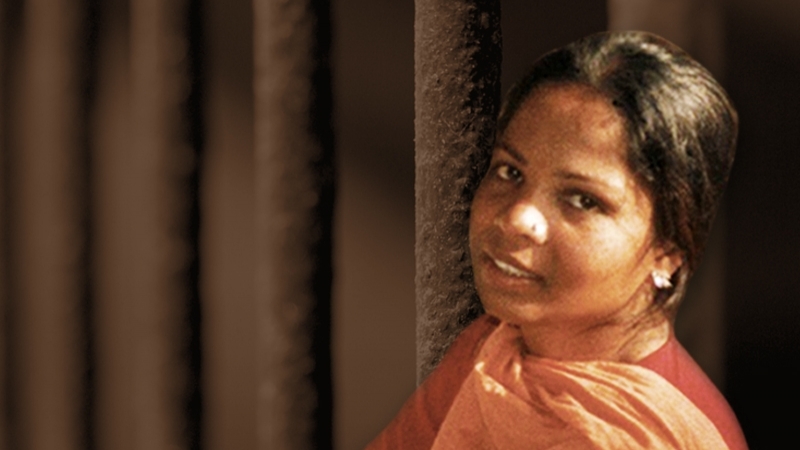
By Dr. John Andrew Morrow
Crescent International (Rabi’ al-Awwal 23, 1440 / December 2018)
Aasia Noreen Bibi is an illiterate Pakistani Christian woman and mother of five children who has been at the center of controversy for nearly a decade. While out picking berries, a group of Muslim women refused to share water with her on the grounds that she was ritually and religiously impure. While some Twelver Shi‘i jurists in the past held the view that all non-Muslims were najis or religiously unclean, a possible residue from Zoroastrianism, contemporary religious authorities generally hold that the People of the Book, Jews and Christians, are tahir or religiously pure. Some even assert that all human beings are inherently pure.
In Sunni Islam, which is the majority manifestation of Islam in Pakistan, the notion that non-Muslims are unclean simply does not exist. It appears very much to be a residue of Hinduism that views non-Hindus as unclean. It is a continuation of the polytheistic caste system and the concept of untouchability.
After the Muslim women made derogatory statements about Christianity, and demanded that Aasia Bibi convert to Islam, the Catholic woman defended her rights and dignity as a human being, stating, “I believe in my religion and in Jesus Christ, who died on the cross for the sins of mankind. What did your prophet ever do to save mankind? And why should it be me that converts instead of you?”
This much she admits, and there is no sin in what she said. According to Islamic law, as interpreted by the Ottomans and other mainstream and moderate authorities, non-Muslims are entitled to express their religious beliefs with full freedom. Such statements of faith, even if they contradict the teachings of Islam, do not meet the standard of slander, libel, defamation, heresy, or blasphemy. According to the traditional Shari‘ah, which is routinely misrepresented by both Islamophobes and takfiris, they fall within the realm of freedom of religious expression.
Shortly after the argument that ensued, a mob gathered at Aasia Bibi’s home, beating her and members of her family. The women involved told a local police officer that the Catholic woman had asserted that the Qur’an was fake, that the Prophet Muhammad (pbuh) only married Khadijah for her money, and that he was filled with worms before he died. Aasia Bibi vociferously denied the veracity of these claims. Since she refused to confess, a local so-called imam, Qari Muhammad Salim, alleged, five days after the fact, without evidence or access to the accused, that Aasia Bibi confessed to him about her crime of blasphemy and offered her apology.
Accused of blasphemy in 2009, under Section 295C of the Pakistan Penal Code, and incarcerated without formal charges, she was eventually judged and sentenced to death by hanging in 2010. Since then, she has been transformed into a central issue by Muslim extremists, who angrily demand that she be hanged, in a perverse manifestation of their supposed loyalty to Islam, by Islamophobic Christian extremists, who view her as a victim of Shari‘ah law, and by secular liberals, who see her as a victim of fundamental human rights abuse. Adding insult to injury, the conditions in which Aasia Bibi was kept were deplorable according to any civilized standards.
From the point of view of Islamic jurisprudence, the case in question should never even have gone to court. It relies entirely on hearsay from people with little credibility: she said that she said and he said that she said. It cannot be compared to the case of Salman Rushdie, or others for example, who devoted time and effort to produce works of literature, scholarship or art, with the deliberate intent of slandering the Prophet Muhammad (pbuh) and offending Muslim sentiment. In the case in question, the women accusers reportedly deliberated prior to filing a complaint, plotting in detail the allegations that they would advance. Despite premeditation, their exaggerated and inflated account of the events was filled with contradictions and inconsistencies. In laying arguably false charges, the female accusers appear to have been motivated by matters of religious intolerance, social and economic class, an ongoing family feud, a desire to “settle old scores,” while the male accusers, who never even witnessed the events, were also driven by misogynistic sentiments. The entire episode recalls Surah Yusuf from the Qur’an, which exclaims, “Behold! It is a snare of you women! Truly, mighty is your snare!” (12:28).
In cases of hearsay, the approach of the Qur’an is clear, namely, it is that of mubahalah, the mutual invocation of curses (3:61). Both parties are to swear that they speak the truth and invoke the curse of God upon themselves if they are lying. The judge then washes his hands of the case and places judgement in the hands of God. The liar will be condemned in the Hereafter. Even if we assume that Aasia Bibi spoke ill of the Prophet (pbuh), something that most Christians living in Muslim majority countries view as suicidal since it is so offensive to religious sentiments, all that was in order was an apology. Despite false traditions that claim to the contrary, the Prophet Muhammad (pbuh) always turned the other cheek when it came to insults directed at his person. In fact, when asked to curse the mushriks who waged war against him, he adamantly refused, saying, “I have not been sent to curse people but as a mercy to all humankind” (Sahih Muslim), echoing the words of Almighty Allah in the glorious Qur’an, “And We have not sent you except as a mercy to humankind” (21:107). While Muslims stand for justice, they should also temper their justice with mercy. We need to forgive in order to be forgiven.
A portion of the Pakistani populace, however, showed little sympathy towards a poor, uneducated, peasant woman from a remote village in Punjab province. In a survey, over 10 million Pakistanis stated that they were personally willing to put her to death. What an embarrassment to Islam and a stain upon the Prophet of Peace (pbuh).
Maulana Yousaf Qureshi, a so-called Muslim cleric, who certainly does not follow the Prophet of Mercy (pbuh), offered a half-a-million-rupee bounty to anyone who would kill her, showing complete and total disregard for law and order. Morally upright politicians, and people of conscience, who came to Aasia Bibi’s defense, and opposed her death sentence, were themselves targeted for death.
Aasia Bibi in an undated photograph distributed by her family. Before this incident took place, she apparently spent some time in one of the service corps of the Pakistani military, as her uniform indicates. Inflamed by demagoguery inside and outside the country, the case was finally settled by judges of conscience who delivered a just verdict while facing down death threats.
Salman Taseer, the governor of Punjab, and Minority Affairs Minister Shahbaz Bhatti, were both murdered by religious renegades who are the scourge of the country. Even Aasia Bibi’s lawyer, Saiful-Mulook, was forced to flee the country as a result of threats when, in Islamic law, attorneys are supposed to be protected from such reprisals. In fact, the Covenants of the Prophet state clearly that non-Muslims must be provided with proper legal representation.
As the Messenger of Allah (pbuh) states in the Covenant of the Prophet Muhammad with the Christians of Najran, as contained in the Chronicle of Sirah, as well as the Covenants of the Prophet Muhammad with the Christians of the World, granted to the Christians of Egypt and the Levant,
If a Christian were to commit a crime or an offense, Muslims must provide him with help, defense, and protection. They should pardon his offense and encourage his victim to reconcile with him, urging him to pardon him or to receive compensation in return.
He stipulated the same in the Covenant of the Prophet Muhammad with the Christians of Persia, namely,
If any Christian shall be found inadvertently offending, Muslims shall deem it their duty to assist him, accompanying him to the law-courts, so that not more may be exacted of him than is prescribed by God, and peace may be restored between the parties to the dispute according to the Scripture.
Much of the corporate mass media has taken advantage of the sickening situation to paint a portrait of Pakistanis as savages, a scandalous accusation since the vast majority of the population hates takfiris, Wahhabis, Deobandis, and Barelvis with a passion. They are vermin that were introduced into the country by the British, Saudi Arabia, and the United States. The people of Pakistan are Sunnis and Shi‘is, the sons of ‘Allamah Muhammad Iqbal, among whom are scientists, scholars, and saints.
The 56-page October 2018 verdict of the Supreme Court of Pakistan, authored by the Chief Justice of Pakistan, Saqib Nisar, with a concurrent judgement authored by Asif Saeed Khan Khosa, came as a relief to many while infuriating the bands of barbarians who are hell-bent on destroying the image of Islam in the world. Consternation was caused when the Pakistani government decreed that Aasia Bibi was banned from leaving the country until the verdict was reviewed. What appeared as weakness on the part of Prime Minister Imran Khan’s government seems to have been a political ruse aimed at momentarily neutralizing the religious cannibals in order to arrange for Aasia Bibi’s departure from the country. The true cowardice did not come from Pakistan, but from the United Kingdom, which refused to consider her asylum application on grounds that it could cause religious unrest in the country, showing that there are just as many misogynistic madmen in the British Isles (Canada and Italy have offered to take her in).
For Islamophobes from the American Center for Law and Justice and other Christian-Zionist organizations, Aasia Bibi was the victim of Islamic law. She was the poster child for persecuted Christians in the Muslim world. They conveniently ignore that blasphemy laws in Pakistan were introduced, not by Pakistanis, but by the British, and not by Muslims, but by so-called Christians.
The British, who believed in law and order, were compelled to pass blasphemy laws to curtail the actions of Christian missionary provocateurs who would deliberately insult the Prophet Muhammad (pbuh) in order to cause riots, thereby, destabilizing the country. These blasphemy laws, which were inherited by Pakistanis from the British, and meant to prevent violence by tying the hands of people like Salman Rushdie and those who want to publish insulting cartoons of the Prophet Muhammad (pbuh), have backfired. They were supposed to prevent religious riots. In reality, they are causing them. They are used to persecute religious minorities, such as Christians, Shi‘is, and others, and fuel the fires of vigilantes who feel free to harass, threaten, intimidate, and attack anyone they oppose on concocted claims of blasphemy.
In commenting on the verdict, Pakistani Chief Justice Mian Saqib Nisar delivered a speech on 11-1-2018 in which he showed immense love and respect toward the Prophet (pbuh), saying that he is ready to sacrifice his life for him, “…but no one can be punished without proof” and that love for the Prophet “does not mean punishing a person on the basis of doubt.” He further added that the judgement was started in the name of Allah (swt) and the Qur’an was referred to throughout the proceedings.
The so-called cure to religious conflict has been shown to be carcinogenic. After all, how can blasphemy laws be considered healthy when they are in clear contradiction of Islamic law? As Abu Hanifah himself has ruled,
If a dhimmi [protected non-Muslim under the state] insults the holy Prophet, he will not be killed as punishment. A non-Muslim is not killed for his kufr [denial of Allah’s authority/divinity] or shirk [the transferance of authority and dominion to a temporal rival of Allah]. Kufr and shirk are bigger sins than insulting the Prophet.
Although some jurists believe that people can be put to death for blasphemy, they rarely extend such punishment to women, and those who do so, give the guilty parties the opportunity to repent in return for pardon. In applying Islam, the Prophet Muhammad (pbuh) has taught us to lean toward compassion and adopt the most moderate approach, “Make things easier, do not make things more difficult, spread the glad tidings, and do not hate” (Sahih Bukhari).
As the evidence presented by Justice Khosa makes clear, if anyone should be punished in the case of Aasia Bibi it is her accusers who violated the Covenant of the Prophet, which remains valid today — those who “had no regard for truth,” and who concocted the claim that she blasphemed Muhammad (pbuh) in public. Although Aasia Bibi insisted that she was innocent, which was enough, according to Islamic law, to free her, no mercy was to be found in the hearts of the religious lunatics. Although Pope Benedict and Pope Francis called for clemency, no mercy was to be found in the hearts of religious Neanderthals. Although 600,000 people from over 100 countries asked that Aasia Bibi be freed, no mercy was to be found in the hearts of the Barmanous. They have shown themselves less human than the bipedal humanoid primates that allegedly inhabit the mountainous region of western Pakistan.
“Hang her, hang her,” they cry. “Behead her, behead her,” they demand. These are people whose hearts are filled with hatred and vengeance. As the Messenger of Allah (pbuh) warned, “Whoever is not merciful to people will not receive the mercy from Allah” (Muslim and Haythami).
As much as the Islamophobes allege that Aasia Bibi was a victim of Islam, it was Islam that saved her as the ruling from the Supreme Court of Pakistan drew heavily from both the Qur’an and the Hadith. In fact, it devoted great detail to the Ashtiname, namely, the Covenant of the Prophet Muhammad with the Monks of Mount Sinai, and cited The Covenants of the Prophet Muhammad with the Christians of the World, which I authored, as evidence that Aasia Bibi was covered by the protections and privileges of the Messenger of Allah (pbuh). As Arnold Yasin Moll, from the Fahm Institute in the Netherlands, wrote regarding the Aasia Bibi Case, “scholarship saves lives.”
For Dr. Craig Considine from Rice University, “this is remarkable.” As for myself, I take no credit. It was the Messenger of Allah (pbuh) who saved Aasia Bibi from certain death. Those who are protesting the decision of the Supreme Court of Pakistan are protesting the Prophet Muhammad (pbuh) himself. May God have mercy on their souls. Or, if we judge them according to how they judge others, may God damn them all to hell.


Published by